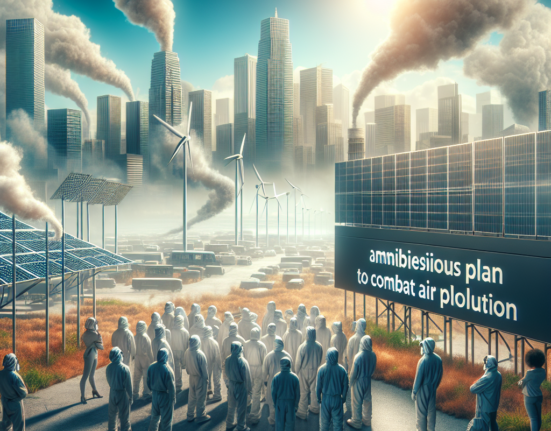In a landmark announcement that has captured international attention, the government has unveiled a monumental shift in its climate change policy. This new direction sets a heightened precedent for environmental responsibility and strives to reposition the nation as a global leader in the fight against climate change.
Historic Policy Overhaul
The policy overhaul represents an ambitious commitment to meet and exceed global goals set by the Paris Agreement, aiming for carbon neutrality by 2045. This accelerated timeline is a significant deviation from prior targets and embodies a comprehensive strategy that spans multiple sectors including energy, transportation, agriculture, and infrastructure.
"Today marks the beginning of a new era in our fight against climate change," declared the Prime Minister in a nationwide address. "Our actions over the next two decades will define the health and well-being of generations to come. It is our responsibility to act decisively and with urgency."
Key Components of the New Policy
1. Transition to Renewable Energy
A centerpiece of the new policy is an aggressive transition to renewable energy. The government plans to increase investments in wind, solar, and hydroelectric power, aiming to generate 80% of the nation’s electricity from renewable sources by 2030. Substantial subsidies and tax incentives will be introduced to spur innovation and adoption within the private sector.
2. Phasing Out Fossil Fuels
The policy outlines a systematic phase-out of fossil fuels, including a ban on new coal mines and a gradual reduction of oil and natural gas extraction. Existing fossil fuel industries will receive support to transition workers into clean energy jobs, with an emphasis on retraining programs and economic diversification.
3. Green Transportation Revolution
Expect major changes in the transportation sector, as the government pledges to promote electric vehicles (EVs) through substantial grants and rebates for consumers and businesses. Plans include the installation of a nationwide network of charging stations and incentives for public transit systems to switch to electric and hybrid fleets.
4. Sustainable Agriculture and Land Use
Agriculture, a significant source of greenhouse gas emissions, will see comprehensive reforms. The government will introduce sustainable farming practices, incentivize soil carbon sequestration, and support reforestation and afforestation efforts.
5. Enhanced Climate Resilience
Recognizing the unavoidable impacts of climate change, the policy also focuses on enhancing the nation’s resilience to climate-related disasters. Investments will be directed towards strengthening infrastructure, protecting coastal areas, and improving emergency response systems.
Economic and Social Implications
Economically, this policy shift is expected to create a green economy boom, with job creation in renewable energy, energy efficiency, and sustainable transportation sectors. Critics have raised concerns about potential short-term economic disruptions, particularly in regions dependent on fossil fuels. However, the government has promised substantial investments in job retraining and regional support to mitigate these effects.
Socially, the policy aims to ensure an equitable transition, with particular attention to vulnerable communities disproportionately affected by both climate change and the economic shifts it entails. The government plans to establish a Climate Justice Fund to support low-income households in the transition to green technologies and energy savings.
International Reactions and Implications
Internationally, the policy shift has been met with widespread acclaim from environmental organizations, policymakers, and climate scientists. Many see this as a critical momentum boost for global climate action, potentially inspiring other nations to adopt more stringent measures.
Helen Thompson, Executive Director of the International Council on Climate Change, stated, “This bold move sets a new standard for what is possible. It is a rallying call for the world to unify and act with the urgency that the climate crisis demands.”
Conclusion
The government’s major policy shift on climate change marks a pivotal moment in the global environmental landscape. By setting ambitious targets and outlining a comprehensive plan, the nation positions itself at the forefront of climate action. The success of these initiatives will depend on sustained political will, collaboration with the private sector, and public support.
As the world watches, the unfolding of this policy will serve as a critical case study in the global endeavour to combat climate change and secure a sustainable future for all.
















Leave feedback about this
You must be logged in to post a comment.